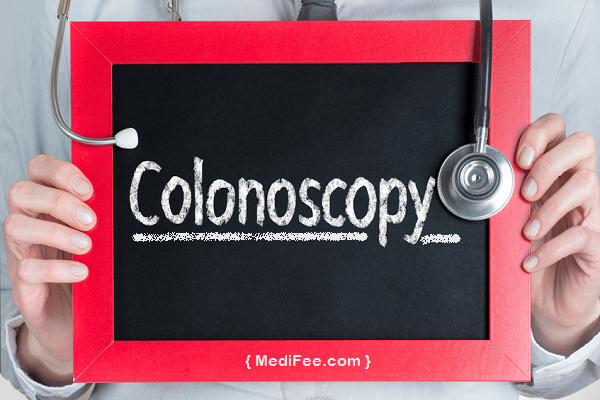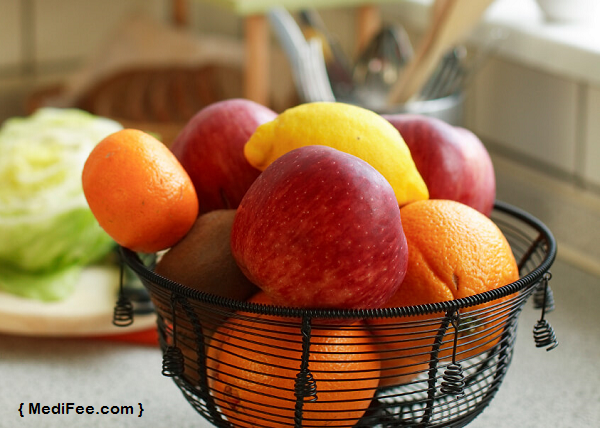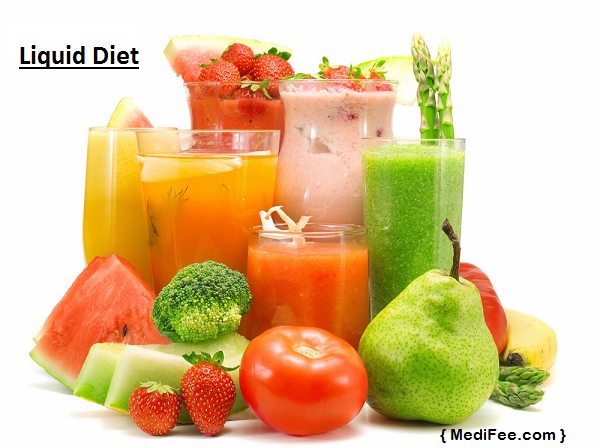The colon in colloquial terms is our large intestine. The large intestine gets rid of the left over food after nutrients from it are absorbed. Waste products are then passed into the rectum. A healthy colon is as important as consuming healthy food. The colon is largely responsible for elimination of toxins and wastes from our body. Various treatments and tests come into the picture, when this organ is under-performing or is in a bad condition.  Colonoscopy is one such test for protecting your large intestine from tumors, polyps and cancerous growths. Read on to find out more about this important test.
Colonoscopy is one such test for protecting your large intestine from tumors, polyps and cancerous growths. Read on to find out more about this important test.
What is a colonoscopy?
A colonoscopy is a procedure performed by a doctor that helps him or her to inspect your colon which lies in the large intestine. It is a diagnostic test for finding causal factors behind tumors, loss of blood, inflammation, colon polyps and tumors in there. It is also used for screening to detect cancerous and precancerous polyps growing in colon, which can be further treated by colon cancer surgery.
The following points will help you know whether you are an eligible candidate for this procedure:
- Weight loss: Sudden or unexplained loss of weight which is not normal may make you want to go in for this test.
- Bowel movements: Change in frequency of passing stools and bowel movement is also one sign that you need to undergo this test, as this symptom could well be a sign of colon cancer.
- Colored stools: Stools that are covered in blood, suggest disorders of digestive tract, abnormal blood vessels and stomach ulcers. A colonoscopy becomes necessary to find out more about the aforementioned disorders which become a barrier to proper digestion.
- Inflammatory bowel disease (IBD): Diseases which lead to inflammation of digestive organs are termed as Inflammatory bowel diseases. This procedure is required for investigating causes of diseases that come under the umbrella of IBD.
- Cancer screening: Colon cancer and colorectal cancer can be detected through a colonoscopy. So if you have developed polyps in your colon, then you need to go in for this process.
- Anemia: Worst cases of anemia can be indicators of colon cancer. If you experience weakness, extreme exhaustion, dizziness, loss of appetite etc. this may be a sign to get a colonoscopy done for ascertaining if the anemia has led to something serious.
- Diarrhea: Chronic diarrhea which won’t go away also requires a colonoscopy.
- Anal bleeding: Bleeding occurring from anal passage is a sign to get a colonoscopy done at the earliest.
How is a colonoscopy done?
After you change into a hospital gown, a sedative is administered to you via injection through a vein. A colonoscope is used by your doctor for examining insides of the large intestine. A colonoscope is a long tube shaped instrument having a camera and light on either ends. This instrument helps the doctor in examining lining of colon and investigating various diseases related to one’s colon. 
The colonoscope is slowly inserted into opening of large intestine till it reaches end of small intestines. Due care is taken by doctor not to damage the colon wall while distending colon. Samples of tissues are then taken out for analysis. It is possible to remove growths on lining of colon which are mostly harmless. You may also be asked to change sides to help the doctor get a better view of the inner linings. Practicing deep breathing through the procedure reduces cramping and eventual discomfort. The test usually lasts between 30 minutes to an hour.
How to prepare for a colonoscopy?
Colonoscopy needn’t be a thing to lose sleep over. Observing few tips can help you sail over it easily:
- Bowel preparation: Follow the instructions given by your doctor for emptying your bowel. This is extremely important for clearing your bowel of wastes to help the doctor get a clearer view of insides.
- Solid foods: Avoid consuming solid foods at all costs. Instead, stick to clear soups and juices, popsicles and tea-coffee without milk.
- Medication to be avoided: Make sure to get details of particular medicines such as non-steroidal anti-inflammatory drugs which need to be avoided a week prior to the colonoscopy procedure.
- Discussion: Having a talk with your doctor if you have any allergies, or have undergone joint replacement surgery is important from surgical point of view.
 Also, it is important to notify them if you have sleep apnea.
Also, it is important to notify them if you have sleep apnea. - Remaining indoors: The drugs given during bowel preparation increases the person’s trips to the bathroom. Hence, he/she should remain at home few days prior to the test.
What will you experience after a colonoscopy?
In most of the cases, you are good to go home after a resting period of 30 minutes. Experiencing drowsiness and nausea is normal after the procedure; however, there are chances you may experience following after-surgery hitches and need to contact your doctor immediately:
- Stomach ache: There are chances that you experience severe stomach ache.
- Swelling in stomach: Also, you could experience swelling in the belly area.
- Nauseatic feeling: A nauseatic feeling that won’t go away also needs to be reported to the doctor.
- Bleeding: Heavy loss of blood in the rectal area is a serious sign too.
What foods to eat or avoid after a colonoscopy?
After undergoing colonoscopy, it is recommended that the patient gradually increases his diet. Observing few dietary recommendations as given below, can help get the digestive tract working and back to normal:
- Liquids: Soups, hot chocolate, fruit juices and water should be consumed in an increased proportion for reducing dehydration occurring out of undergoing a colonoscopy procedure.
- Solids: Avoid fatty and sugary foods. However, make sure you try to include carbohydrate and protein-rich foods in your diet. Legumes and sprouts should be avoided.
- Low-fiber foods: Low-fiber foods are extremely important for gradually getting back to a normal diet.
 It is okay to eat select fruits and vegetables like peeled apricots, turnips, carrots, mushrooms etc.
It is okay to eat select fruits and vegetables like peeled apricots, turnips, carrots, mushrooms etc. - Fats and oils: Including mayonnaise, butter and vegetable oils is fine too.
- Dairy products: Incorporating milk and diary products like yogurt, cheese, buttermilk, milk and cream, is a requisite to getting back your earlier digestive mode.
- Glutenous foods: Foods like wheat, pastas, bread, noodles are the foodstuffs high on gluten and so should be avoided.
- Packaged foods: Packaged food products like chips, biscuits, energy bars and foods which require a lot of chomping and breaking also need to be avoided few days post surgery.
What are the possible complications a colonoscopy can bring about?
Every medical procedure comes with its fair share of complications and risks. However, it is not necessary that these complications may materialize in each and every case. They are just to make you as a reader and patient aware of the same, to lessen the mental and physical anguish to some extent, if not entirely.
- Low blood pressure
- Change in heart-rate
- Perforation in colon wall, a major perforation can also require repeat surgery
- Severe stomach ache
- Loss of blood
- Drowsiness due to sedatives
- Blood clotting because of anesthetic used
- Electrolytic imbalance in people suffering from heart and kidney disorders
- Bacterial infections during colonoscopic procedure
- Post Traumatic Stress Syndrome which affects proper digestion
- Hemorrhoids
- Acute diverticulitis
Tips to improve or fix your digestive health and intestinal functioning:
A healthy colon is necessary for execution of proper digestive function in the body. A colonoscopy procedure leads to dehydration and loss of electrolytes from the body. Regulating diet and exercise in such a way that it cleanses linings of stomach, colon and small intestines, is a necessary evil. 
- Meditation: Practicing deep breathing and meditation is necessary to restore intestinal health.
- Liquid diet: Proper liquids are essential in hydrating, disinfecting and strengthening intestinal area.
- Acidic fruits: Acid rich fruits like kiwi, lime, avocado for improving intestinal function and digestion.
- Watch your weight: Researchers feel that being over-weight increases one’s risk to get colon cancer. Hence, a healthy diet is a must to regulate digestion and intestinal health.
- Fish intake: Medical experts suggest eating fish thrice a week along with other foods. Fishes are rich in omega 3 fatty acids which help keep inflammation of colon outside the door. Colon cancer is also avoided by consumption of fish rich in
omega 3. - Meat: Try and avoid eating red meat, as it contains cancer-causing substances.
Thus, to conclude, colonoscopy is a test that safeguards your intestine and digestive tract, without which food intake won’t be of any use. The correct exercise regimen and dietary planning can naturally protect your colon. If no, colonoscopy is surgical option to know whether you need medical intervention.